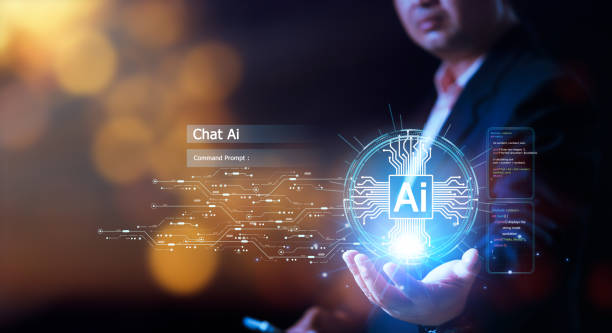An Introduction to the World of Mobile AI Applications and Recent Trends
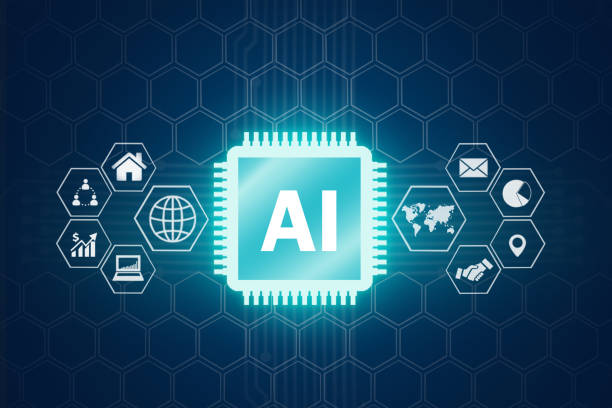
The world of technology is witnessing immense transformations, and among these, #Mobile_AI_Applications are rapidly becoming the backbone of our digital lives.
These smart mobile apps not only simplify daily tasks but also bring unparalleled capabilities to smartphones that were previously only conceivable in science fiction movies.
From smart voice assistants to image processing and facial recognition tools, #Artificial_Intelligence is increasingly integrated into our portable devices.
Recent trends indicate a growing demand for mobile AI applications capable of learning, analyzing, and responding intelligently.
These applications, utilizing complex #Machine_Learning and #Neural_Network algorithms, elevate the user experience to a new level and provide diverse capabilities ranging from data analysis to creative content generation.
Currently, we are witnessing the emergence of a new wave of innovations in this field, which will soon become an inseparable part of our daily interactions with technology.
These advancements outline a future where mobile applications will be capable of performing more complex and personalized tasks.
Are you falling behind in competition with large online stores?
Rasaweb, with professional e-commerce website design, brings your business online and increases your market share!
✅ Increased brand credibility and customer trust
✅ Easy shopping experience leading to more sales
⚡ Get free website design consultation now!
How Key Underlying Technologies Power Mobile AI Applications
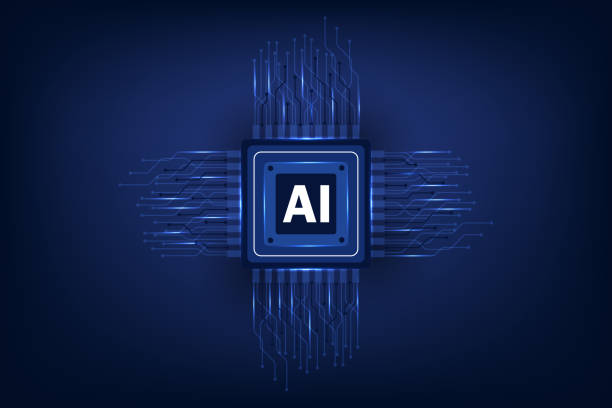
To understand how mobile AI applications work, we need to take a deeper look at their underlying technologies.
The core of these applications is based on concepts such as Machine Learning and Deep Learning.
These algorithms allow applications to learn from data and become smarter over time.
For example, in voice recognition applications, deep learning models analyze billions of audio samples to identify and interpret human speech with high accuracy.
One of the most significant challenges in implementing these technologies on mobile devices is hardware limitations and battery consumption.
For this reason, developers have moved towards methods such as Edge AI processing, which performs part of the heavy computations directly on the device instead of on cloud servers.
This approach not only reduces latency but also improves user privacy, as data does not need to be sent to external servers.
Natural Language Processing (NLP) for understanding and generating human language, and Computer Vision for analyzing images and videos, are two other main pillars in the development of mobile AI applications.
These technologies, coupled with more powerful hardware in smartphones, promise a future where AI-powered apps can interact with the real world in unprecedented ways.
Types of Mobile AI Applications and Their Uses
![]()
The variety of mobile AI applications is so vast that their footprint can be seen in almost every field.
From everyday uses to specialized tools, these apps have impacted our lives.
Below, we will examine some of their most important types and applications:
| Category | Prominent Examples | Main Application |
|---|---|---|
| Smart Voice Assistants | Siri, Google Assistant, Bixby | Performing tasks with voice commands, answering questions, setting reminders |
| Image Processing and Editors | Google Photos, FaceApp, Snapseed | Automatic photo enhancement, facial recognition, applying smart filters |
| Health and Fitness | Fitbit App, MyFitnessPal | Activity tracking, sleep analysis, providing personalized recommendations |
| Education and Language Learning | Duolingo, Elevate | Personalized learning, adaptive exercises, pronunciation correction |
| Gaming and Entertainment | Pokemon GO (Augmented Reality), Character.AI | Augmented reality experiences, intelligent NPCs, entertaining chatbots |
This list is just a small example of the wide range of uses for mobile AI applications.
From real-time translation tools to content recommendation systems on social networks, mobile AI is increasingly making our daily lives simpler, more efficient, and even more entertaining.
In the near future, we will witness a deeper integration of these applications with other technologies such as Augmented Reality (AR) and the Internet of Things (IoT), leading to the creation of innovative and unparalleled user experiences.
Analyzing the Advantages and Challenges of Mobile AI Applications
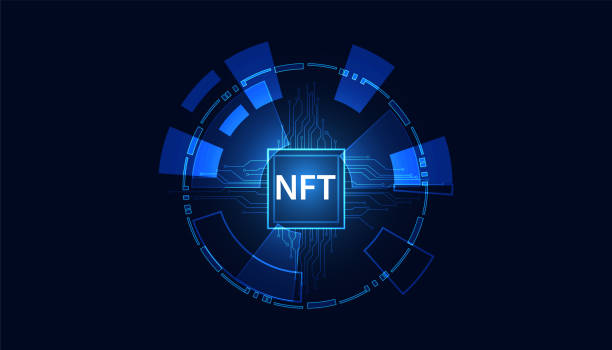
Mobile AI applications bring with them a myriad of benefits that significantly enhance the user experience.
Personalization is one of their biggest advantages; these apps provide unique content and services by learning from user behavior and preferences.
For example, a music streaming application can suggest new songs based on your taste.
Increased efficiency and productivity are also among their strengths.
Voice assistants can perform various tasks without needing screen touch, and translation applications eliminate language barriers.
Easy and widespread accessibility is also important; almost anyone with a smartphone can benefit from AI capabilities.
However, the development and use of mobile AI applications are not without challenges.
One of the most significant concerns is data privacy.
These apps require a large volume of personal data for proper functioning, which can pose security risks and lead to misuse of information.
Algorithmic Bias is another challenge; if the training data for algorithms contains biases, the AI outputs may also be unfair or discriminatory.
High consumption of hardware resources and battery power can also be a limitation for optimal performance, although this issue is decreasing with the advancement of Edge AI technology.
Furthermore, the need for a stable internet connection for many advanced AI features can be problematic in areas with poor coverage.
Finally, the complexity of developing and maintaining these applications, due to the need for specialized knowledge in machine learning, is also a significant challenge for development companies.
Does your company’s website perform as it deserves for your brand?
In today’s competitive world, your website is your most important online tool. Rasaweb, specializing in professional corporate website design, helps you to:
✅ Gain customer credibility and trust
✅ Convert website visitors into customers
⚡ Get a free consultation now!
The Future of Mobile AI Applications and Emerging Trends

The future of mobile AI applications is exciting and full of boundless potential.
It is predicted that these applications will play a more central role in our daily lives in the coming decades.
One of the emerging trends is “Edge AI,” which refers to processing data directly on the mobile device, without the need to send it to cloud servers.
This not only increases responsiveness but also enhances user privacy and reduces reliance on an internet connection.
This capability paves the way for applications that can provide intelligent services even offline.
Furthermore, the convergence of AI with Augmented Reality (AR) and Virtual Reality (VR) will create unparalleled user experiences.
Imagine an application that can recognize real-world objects and display relevant information instantly in your view, or games where AI characters are incredibly realistic and adaptive.
This integration has the potential to create entirely new educational, entertainment, and even medical applications.
Automatic content generation by AI, from text and image production to music and video, is another trend we will witness in mobile AI applications.
This capability allows users to produce creative and high-quality content with minimal effort.
Furthermore, advancements in Quantum Computing and AI algorithms could lead to significant improvements in the performance and capabilities of these applications, pushing current boundaries.
Entertaining and interactive chatbots are also another dimension of this transformation, which can act as virtual friends or companions in games.
Guidance for Choosing the Best Mobile AI Applications
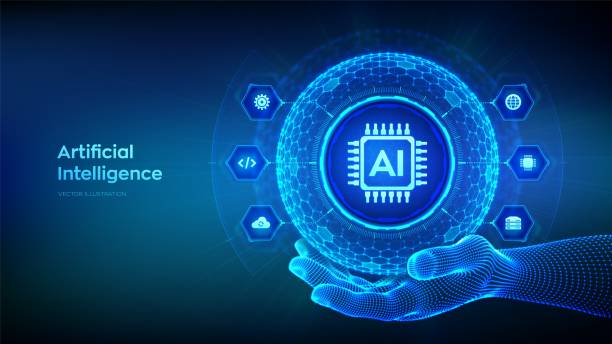
In today’s world, where countless mobile AI applications are released daily, choosing the best option can be challenging.
To make an informed choice, you should consider several key points.
The first and most important step is determining your needs.
Are you looking for a voice assistant to manage daily tasks, or a tool for professional photo editing with AI assistance? Perhaps an educational application that adapts to your learning needs is what you’re after.
Precisely identifying your needs paves the way for selection.
Next, examine the application’s features and capabilities.
Does the chosen application effectively offer advanced AI features such as adaptive learning, natural language processing, or image recognition? User reviews and ratings in app stores can also be a valuable resource for evaluating the app’s real-world performance.
Data privacy and security are crucial factors; ensure that the application has transparent policies regarding the collection, use, and storage of your data.
Also, pay attention to the application’s compatibility with your device and its resource consumption (such as battery).
Finally, before purchasing or committing to long-term use, try out trial or free versions to ensure its efficiency and alignment with your expectations.
Remember that a good mobile AI application not only simplifies your tasks but also intelligently integrates with your lifestyle.
Mobile AI Applications: Transformations and Impacts in Various Industries

Mobile AI applications are no longer limited to voice assistants or photo editors; they are creating profound transformations in various industries.
In the healthcare sector, applications have emerged that are capable of diagnosing diseases through medical image analysis, monitoring vital signs, and providing personalized recommendations for lifestyle improvement.
These programs can be very useful in remote areas or for individuals with limited access to doctors.
In the financial industry, mobile AI applications help users manage smart budgeting, monitor investments, and even access financial advice through AI chatbots.
Fraud detection and security in banking transactions are also other important applications.
In the education sector, AI apps provide adaptive learning experiences that adjust content based on each student’s progress and learning style.
This can help improve academic results and increase student motivation.
In the retail industry, AI-powered applications analyze purchasing patterns, provide personalized product recommendations, and enable virtual shopping experiences with augmented reality.
Even in agriculture, mobile AI applications can assist farmers in monitoring crop health, predicting pests, and optimizing irrigation.
These examples demonstrate how mobile AI is redefining ways of working and living in all aspects, providing new opportunities for innovation and growth.
Security and Privacy Tips for Using Mobile AI Applications

When using mobile AI applications, paying attention to security and privacy is of utmost importance.
These applications often access a large volume of your personal data, from location information to photos and even audio.
Therefore, it is crucial to know what information is shared and how it is protected.
| Topic | Explanation and Solution |
|---|---|
| Access Permissions | Only grant permissions to the app that are essential for its functionality. For example, a flashlight app does not need access to your contacts. |
| Review Privacy Policy | Always read the app’s privacy policies before installation. Understand how the developer collects, uses, and stores your data. |
| Regular Updates | Always keep your apps and phone operating system updated. Updates often include important security patches. |
| Use Strong Passwords | For user accounts in applications, use strong and unique passwords. Enabling two-factor authentication (2FA) is recommended if possible. |
| Vigilance Against Phishing | Be wary of suspicious messages or links that might attempt to steal your information by misusing an application’s name. |
Furthermore, algorithmic bias is a growing concern in the field of AI privacy and ethics.
If the data used to train AI applications contains specific biases, these biases are transferred to the application’s outputs, which can lead to discrimination or unfair results.
Choosing applications from reputable sources and trustworthy developers who are committed to transparency in their data policies can help mitigate these risks.
By observing these tips, you can benefit from the amazing capabilities of mobile AI applications with greater confidence.
Is your online sales not performing as expected? With Rasaweb, solve the problem of low sales and poor user experience forever!
✅ Increase conversion rate from visitor to customer
✅ Create an enjoyable user experience and increase customer trust
⚡ Get a free consultation now!
Comparing Cloud AI and On-Device AI Performance in Mobile Applications
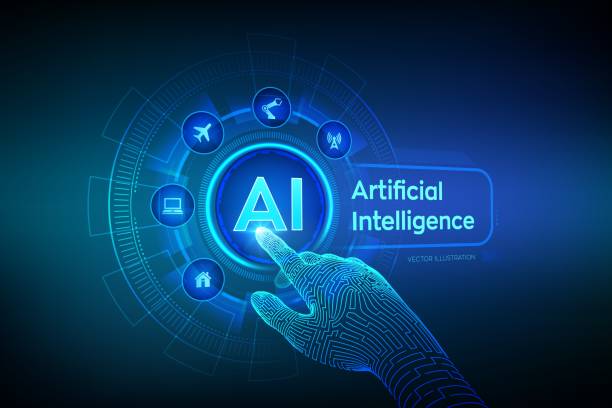
In the development of mobile AI applications, there are two main approaches for processing AI data: Cloud AI and On-Device AI, also known as Edge AI.
Each of these methods has its own advantages and disadvantages that affect the performance, privacy, and user experience of mobile AI applications.
In the Cloud AI approach, data is sent from the mobile device to powerful servers in the cloud.
Heavy AI processing, such as complex image recognition or extensive natural language analysis, is performed on these servers, and the results are returned to the device.
The main advantage of this method is access to unlimited computational power and very large and complex AI models that cannot run on a mobile device.
This allows applications to offer highly advanced capabilities.
However, it also has disadvantages, including latency due to the time required to send and receive data, dependence on a stable internet connection, and concerns regarding data privacy, as personal information is sent to external servers.
In contrast, On-Device AI (Edge AI) performs AI processing directly on specialized AI chipsets (such as Neural Engine in iPhones or NPU in Android) embedded within the mobile device itself.
The advantages of this method include higher speed and lower latency (as data does not need to travel back and forth to a server), greater privacy protection (personal information remains on the device), and offline functionality.
However, there are also limitations, including less computational power compared to cloud servers, which means only smaller and less complex AI models can effectively run on the device, and battery consumption might increase.
The choice between these two approaches depends on the specific needs of each mobile AI application and the importance of factors such as speed, privacy, and offline capabilities.
Many modern applications use a combination of both methods to provide the best user experience.
New Innovations and the Future of Mobile AI Applications in Entertainment
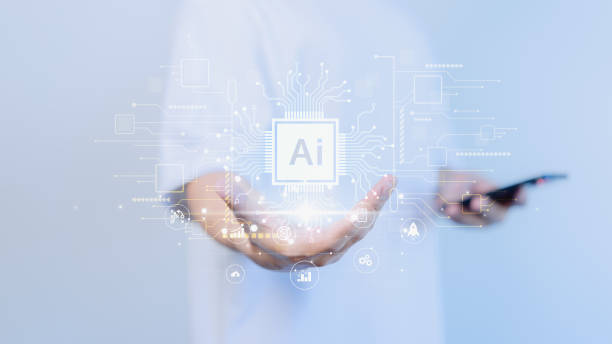
The world of entertainment has always been a pioneer in utilizing new technologies, and mobile AI applications are no exception.
Recent innovations in this field have brought user experiences to new levels of interaction and personalization.
One of the most prominent examples is AI-powered mobile games where Non-Player Characters (NPCs) exhibit much more realistic intelligence and adaptability.
These NPCs can learn from player behavior and react dynamically to their actions, which significantly increases the depth and appeal of games.
In addition to gaming, mobile AI applications also play a key role in creating entertaining content.
There are apps that can create smart caricatures from your photos, or compose music by analyzing your voice.
These capabilities allow users to produce creative and unique content without needing specialized artistic skills.
Also, in the realm of video and music streaming platforms, mobile AI analyzes your taste and suggests new movies, series, and songs, which significantly helps in discovering new content.
Smart recommendation systems not only enhance your entertainment but also assist platforms in retaining users and increasing watch or listening time.
The future is moving towards mobile AI applications that not only personalize content but also actively participate in creating entertaining experiences, blurring the lines between content consumer and producer.
Entertaining and interactive chatbots are also another dimension of this transformation, which can act as virtual friends or companions in games.
Frequently Asked Questions
| Question | Answer |
|---|---|
| What is a mobile AI application? | It is software that uses artificial intelligence technologies (such as machine learning, natural language processing, computer vision) on a mobile device to perform tasks, personalize the user experience, or automate processes. |
| Name some examples of these applications. | Voice assistants (such as Siri, Google Assistant), facial recognition apps, smart keyboards, AI-powered photo editors, and translation applications. |
| What are the advantages of mobile AI applications? | Enhanced user experience, personalized services, task automation, improved accessibility, and providing offline capabilities for some AI features. |
| What are the challenges in developing these applications? | Limitations of processing power and battery life of mobile devices, data privacy concerns, optimizing the size of AI models, and the need for continuous updates. |
| How do these applications process data (on-device or cloud)? | Some process locally (on-device) for speed and privacy, others send data to the cloud for processing, and often a hybrid approach is used. |
| What technologies are commonly used in them? | Machine Learning (ML), Deep Learning (DL), Natural Language Processing (NLP), Computer Vision (CV), and Speech Recognition. |
| What impact do they have on daily life? | Simplifying tasks, improving communication, enhancing entertainment, providing personalized recommendations, and contributing to smarter living. |
| What is “Edge AI” in the mobile context? | It refers to running AI models directly on the mobile device (at the “edge” of the network) instead of sending data to a central cloud server. |
| What is the future trend for these applications? | More powerful on-device AI, deeper integration with Augmented Reality (AR), hyper-personalization, and greater emphasis on ethical AI and privacy. |
| Are mobile AI applications always online? | No, many modern applications use on-device AI for core functionalities, allowing them to work offline or with limited connectivity, although some features may require an internet connection. |
And other services of Rasaweb Advertising Agency in the field of advertising
Smart Reportage: An innovative platform for improving campaign management with custom programming.
Smart Data Analysis: A specialized service for growing customer acquisition based on attractive UI design.
Smart Marketing Automation: Transform customer acquisition with the help of key page optimization.
Smart Marketplace: A specialized service for increasing sales based on marketing automation.
Smart Marketplace: An innovative platform for improving customer behavior analysis with custom programming.
And over a hundred other services in the field of online advertising, advertising consultation, and organizational solutions
Internet Advertising | Advertising Strategy | Advertorial
Sources
The Future of Mobile AI ApplicationsAI Revolution in Mobile 2024The Role of AI in the Future of SmartphonesThe Impact of AI on Mobile Applications
? Are you ready to transform your business in the digital world? Rasaweb Afarin Digital Marketing Agency, specializing in custom website design, targeted SEO, and modern digital marketing strategies, will be your guide on the path to online success.
📍 Tehran, Mirdamad Street, Next to Central Bank, Southern Kazeroun Alley, Ramin Alley, No. 6


